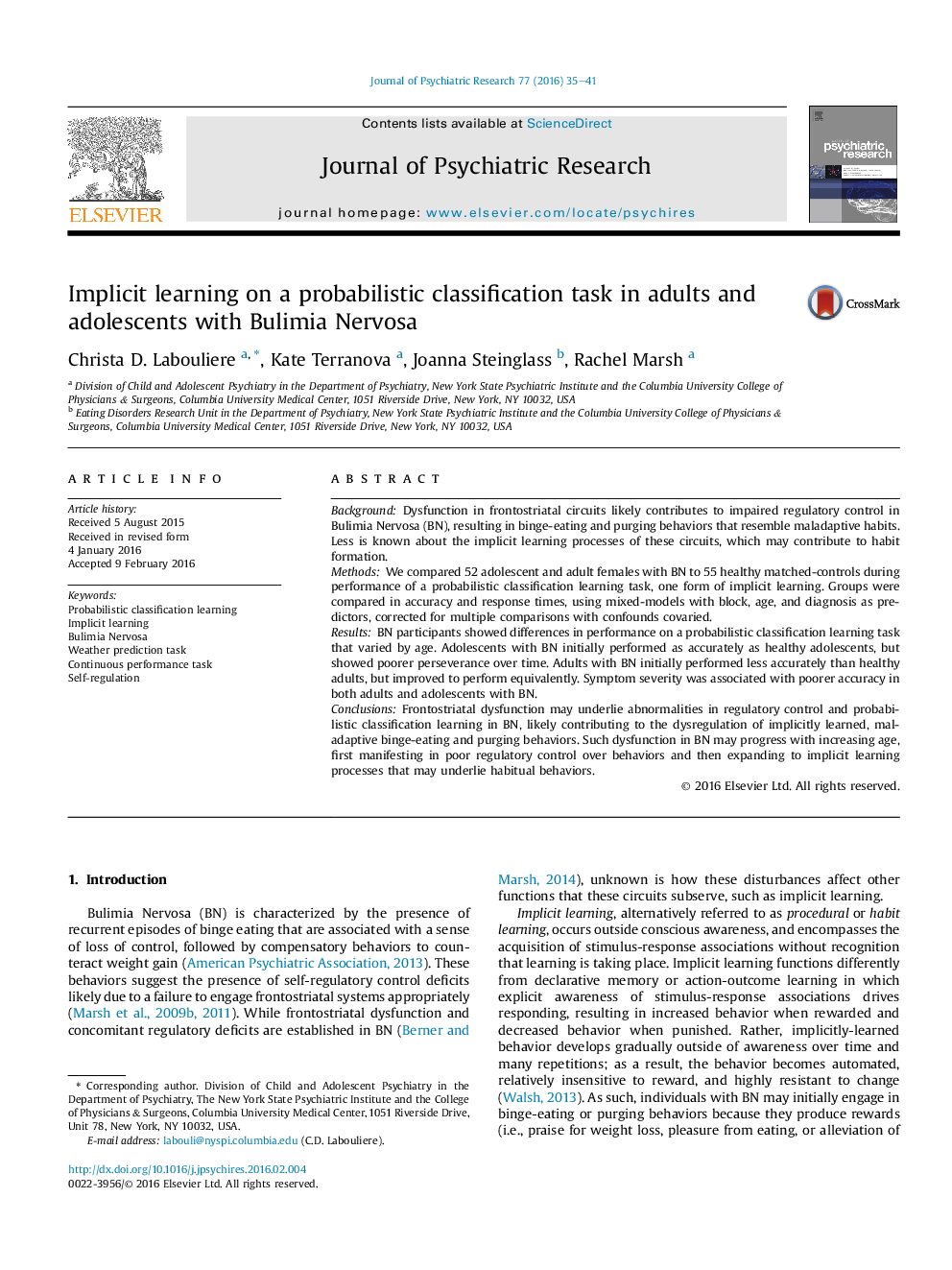| کد مقاله | کد نشریه | سال انتشار | مقاله انگلیسی | نسخه تمام متن |
|---|---|---|---|---|
| 326436 | 542421 | 2016 | 7 صفحه PDF | دانلود رایگان |
• BN participants show age-related differences on a probabilistic classification task.
• BN adolescents had unaffected early performance but less perseverance over time.
• BN adults took more trials to perform as well their healthy counterparts.
• Performance accuracy was inversely associated with BN symptom severity.
• Regulatory failures may extend to deficits in implicit processes with age in BN.
BackgroundDysfunction in frontostriatal circuits likely contributes to impaired regulatory control in Bulimia Nervosa (BN), resulting in binge-eating and purging behaviors that resemble maladaptive habits. Less is known about the implicit learning processes of these circuits, which may contribute to habit formation.MethodsWe compared 52 adolescent and adult females with BN to 55 healthy matched-controls during performance of a probabilistic classification learning task, one form of implicit learning. Groups were compared in accuracy and response times, using mixed-models with block, age, and diagnosis as predictors, corrected for multiple comparisons with confounds covaried.ResultsBN participants showed differences in performance on a probabilistic classification learning task that varied by age. Adolescents with BN initially performed as accurately as healthy adolescents, but showed poorer perseverance over time. Adults with BN initially performed less accurately than healthy adults, but improved to perform equivalently. Symptom severity was associated with poorer accuracy in both adults and adolescents with BN.ConclusionsFrontostriatal dysfunction may underlie abnormalities in regulatory control and probabilistic classification learning in BN, likely contributing to the dysregulation of implicitly learned, maladaptive binge-eating and purging behaviors. Such dysfunction in BN may progress with increasing age, first manifesting in poor regulatory control over behaviors and then expanding to implicit learning processes that may underlie habitual behaviors.
Figure optionsDownload as PowerPoint slide
Journal: Journal of Psychiatric Research - Volume 77, June 2016, Pages 35–41
